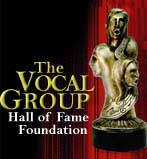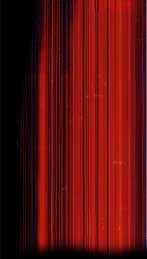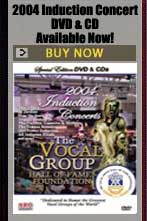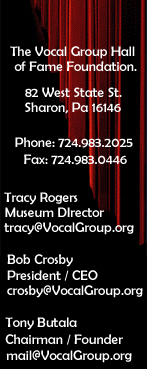States silence musical copycats
By Elizabeth Wilkerson, Special to Stateline.org
Platters pretenders and conning Coasters beware -- states are cracking down on copycat musical groups who steal gigs from authentic artists and cheat fans.
Connecticut, Illinois, North Dakota, Pennsylvania and South Carolina have passed new laws requiring that performing groups include at least one original member in order to use a group’s name in advertisements or performances.
State attorneys general will enforce the laws by issuing cease and desist orders to groups and venues that misleadingly advertise shows by bands without original members. The laws do not limit acts clearly advertised as tributes or approved by the actual musicians.
Musical pioneers from the ‘50s and ‘60s, such as Mary Wilson of
The Supremes and Frank Maffei and Joe Terry of
Danny & The Juniors, have lobbied for the laws to protect the legacies and livelihoods of classic performers from impostors who steal their income and acclaim.
“A lot of the old timers … are in the twilight of their careers and they still enjoy performing, [but] people are running around pretending to be them, taking their money and taking their applause,” said John “Bowzer” Bauman, a former member of
Sha Na Na, a group famous for its role in
Grease and hits such as “
Rock and Roll is Here to Stay.”
Frauds play in a variety of venues, including theaters, performing arts centers, casinos, state and county fairs, and festivals, Bauman said.
“There are multiple groups of imposters performing nightly 365 days a year all over the 50 states,” Bauman said. “There are thousands and thousands of people going to these shows and not having any idea what they’re seeing.”
Bauman, who still performs often, is chairman of the
Vocal Group Hall of Fame’s (VGHF) Truth in Music committee, which began lobbying for state laws restricting how musical groups and venues advertise performances after a failed effort to protect musical artists through federal trademark law.
Traditional trademark law, which protects words, symbols or phrases used to identify and distinguish various goods, is designed to protect products, he said. Recording groups fall into a gray area because the performers are the product, which changes as group members change.
In the case of musical groups with high turnover, there are often many former members who may rightfully use the name but are not highly recognizable to the public. Impersonators claim to be such musicians, usually those who left the group years ago or have died, Bauman said.
Also, because of unfair practices in the music industry at the time, many classic artists signed recording contracts giving them no legal right to the names of their bands, said Fred Balboni, president and CEO of the Balboni Communications Group, LLC. Balboni is the manager of Herb Reed, the only original member of The Platters still performing.
“Everything was owned by an entity, whether it was a label or a producer or a combination of the two. It was not a kind time for artists at all,” Balboni said.
Venue owners and concertgoers often do not spot imposters because artists from the ‘50s, popular before the advent of video, are not as recognizable as newer groups, Bauman said.
“Unfortunately, these days it’s really easy to stick any people up there and pretend they are The Platters,” Bauman said. “Fifty years from now, you won’t be able to do it with
U2. And The Platters were the U2 of the ‘50s.”
To help combat impostor groups, several classic bands have established Web sites with current pictures of authentic performers and warnings for consumers. For example, the Web site for
Herb Reed and The Platters advises fans that Reed’s is the only group that includes an original member of The Platters.
“We try to get the word out as often as we can,” said Balboni, who hears frequent reports of impostor bands. He said he is quick to alert venues, and sometimes members of the local news media.
Though the VGHF felt federal legislators recognized the need for more protection for recording artists, Bauman said the attempt failed because of reluctance to alter trademark law, which he described as “very settled and very hard to adjust.” The VGHF then turned to the states.
“This has always been a two-pronged issue,” Bauman said. “The audience is being ripped off and duped, and the authentic artist is sitting at home while the phonies are working.”
Many of the new laws are based on Pennsylvania’s
Truth in Music Advertising Act. It prohibits groups from advertising or conducting performances using false or misleading connections with other groups. Imitators could face civil penalties from $5,000 to $15,000, in addition to being required to make restitution.
Bauman said the issue was “classically bipartisan,” and that bills introduced by members of both parties have faced little or no opposition. Donovan said the Connecticut bill had “overwhelming support.”
Delaware, Massachusetts, Michigan, New Jersey and New York are considering similar laws, and advocates are working to introduce bills in California, Florida, Missouri, Nevada and Ohio.
Though the VGHF plans to push for a similar federal law, Bauman said the group believes enforcement will be more efficient at the state level, through the offices of attorneys general. It won’t take many enforcement actions to significantly reduce the number of phonies, he said.
“I think it’s going to be pretty cut and dried,” Petito said. Though the attorney general’s office has not yet utilized the new law, Petito said one venue was asked to put an announcement on its Web site and in its ticket window to inform customers they were not seeing a group with original members.
“A venue really hates getting a call from the attorney general’s office. We think that the venues will end up being a lot more careful about what they’re putting on their stages, and that will be the public’s first line of defense,” Bauman said.










